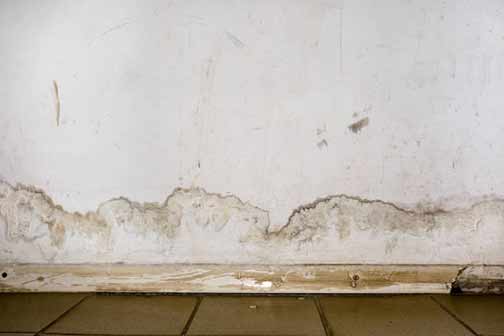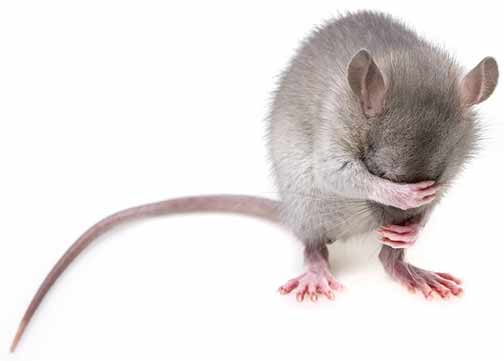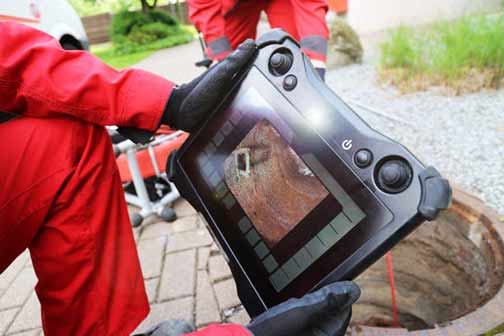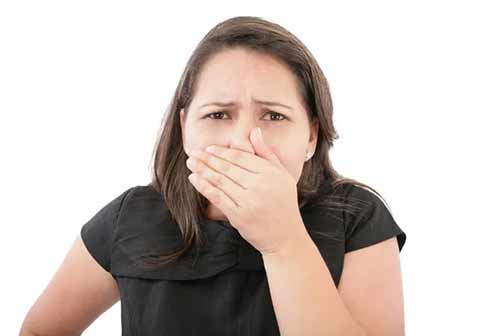Unpleasant Odors: The First Sign of Trouble
One of the earliest and most noticeable signs of a sewage leak under your home is the presence of unpleasant odors. These smells are often described as musty, foul, or similar to rotten eggs. The odors can permeate through floors, walls, and air vents, making your living environment uncomfortable and unhealthy. If you detect such odors, it is crucial to investigate further, as they can indicate a serious underlying problem with your sewage system.
Unpleasant odors emanating from sewage leaks are not just a nuisance; they can also pose serious health risks. These odors are often caused by the release of harmful gases such as hydrogen sulfide, which can be toxic in high concentrations. Prolonged exposure to these gases can lead to symptoms such as headaches, dizziness, nausea, and even respiratory issues. Therefore, it is essential to address the source of the odors promptly to ensure the safety and well-being of your household.
To identify the source of the odors, start by inspecting areas where the smell is most potent. Check for any visible signs of leaks, such as wet spots or discoloration on walls, floors, and ceilings. Additionally, pay attention to any unusual sounds, such as gurgling or bubbling noises, which may indicate a problem with your sewage system. If you are unable to locate the source of the odors, consider seeking the assistance of a professional plumber who can conduct a thorough inspection and identify the underlying issue.
Slow Drains: An Early Indicator of Sewage Issues
Another common sign of sewage leaks is slow-draining sinks, bathtubs, or toilets. When sewage lines are compromised, they can become clogged or obstructed, leading to slow drainage. If you notice that your drains are not functioning as efficiently as they used to, it may be a sign that there is a leak or blockage in your sewage system. Ignoring this issue can lead to more severe problems, including complete blockages and backups.
Slow drains can also be caused by a buildup of debris, grease, and other materials in your pipes. Over time, these substances can accumulate and create blockages that impede the flow of water. To prevent slow drains, it is important to practice proper maintenance and avoid disposing of items that can clog your pipes, such as cooking grease, hair, and large food particles. Regularly cleaning your drains with a mixture of baking soda and vinegar can also help keep them clear and functioning properly.
If you experience persistent slow drains despite your efforts to maintain them, it may be indicative of a more serious issue, such as a sewage leak or a damaged pipe. In such cases, it is advisable to seek the assistance of a professional plumber who can diagnose the problem and recommend appropriate solutions. Addressing the issue promptly can help prevent further damage to your sewage system and ensure the smooth operation of your drains.

Unexplained Wet Spots: A Hidden Danger
Unexplained wet spots on your floors, walls, or ceilings can be a hidden danger indicating a sewage leak. These wet spots may appear as damp patches, discoloration, or even puddles of water. They can result from leaking sewage pipes that are releasing moisture into your home’s structure. Over time, this moisture can cause significant damage to your property, including rot, mold growth, and structural weakening.
In addition to causing structural damage, unexplained wet spots can also create an ideal environment for the growth of harmful bacteria and pathogens. Sewage contains a variety of contaminants that can pose serious health risks if they come into contact with your living spaces. Therefore, it is important to address any wet spots promptly and determine their source to prevent potential health hazards.
To identify the source of unexplained wet spots, start by inspecting the areas where the moisture is most visible. Look for any signs of leaks, such as dripping water or dampness around pipes and fixtures. If you are unable to locate the source of the moisture, consider using a moisture meter to detect hidden leaks within your walls or floors. In cases where the source of the moisture is not easily identifiable, it is advisable to seek the assistance of a professional plumber who can conduct a thorough inspection and identify the underlying issue.
Foundation Cracks: Structural Damage from Sewage Leaks
Foundation cracks are a serious concern that can arise from sewage leaks. When sewage leaks occur, they can erode the soil beneath your home’s foundation, leading to instability and cracks. These cracks can compromise the structural integrity of your home and may require costly repairs. If you notice any new or expanding cracks in your foundation, it is essential to investigate the possibility of a sewage leak.
Foundation cracks can manifest in various forms, including vertical, horizontal, and diagonal cracks. Vertical cracks are often caused by the natural settling of your home, while horizontal cracks can indicate more severe structural issues, such as soil erosion or pressure from water buildup. Diagonal cracks are typically a sign of uneven settling or shifting of the foundation, which can be exacerbated by sewage leaks.
To assess the severity of foundation cracks, start by measuring their width and length. Small hairline cracks are generally not a cause for concern, but larger cracks that continue to expand may indicate a more serious problem. Additionally, pay attention to any signs of water infiltration, such as dampness or mold growth around the cracks. If you suspect that a sewage leak may be contributing to the foundation cracks, it is important to seek the assistance of a professional who can conduct a thorough inspection and recommend appropriate repairs.
Increased Pest Activity: A Symptom of Sewage Leaks
Sewage leaks can attract pests such as rodents, insects, and other unwanted creatures. These pests are drawn to the moisture and nutrients present in sewage, and they can enter your home through cracks and openings. Increased pest activity can be a symptom of a sewage leak, and it is important to address both the pest problem and the underlying sewage issue to prevent further infestations and damage.
Common pests that may be attracted to sewage leaks include rats, mice, cockroaches, and flies. These pests can carry a variety of diseases and pose serious health risks to you and your family. Additionally, they can cause damage to your property by chewing through wires, insulation, and other materials.
To address increased pest activity, start by inspecting your home for any signs of pests, such as droppings, gnaw marks, or nests. Seal any cracks and openings that may provide entry points for pests, and consider setting traps or using pest control products to eliminate existing infestations. However, it is important to also address the underlying sewage issue to prevent future infestations. Seek the assistance of a professional plumber who can identify and repair the source of the sewer line leak, ensuring that your home remains pest-free and safe.

Mold and Mildew: Health Risks from Sewage Leaks
Mold and mildew thrive in damp and humid environments, making sewage leaks an ideal breeding ground for these harmful fungi. Mold and mildew can cause various health issues, including respiratory problems, allergies, and infections. If you notice mold or mildew growth in your home, it is essential to investigate the source of moisture, as it may be due to a sewage leak. Addressing the leak and removing the mold is crucial to maintaining a healthy living environment.
Mold and mildew can appear in various forms, including black, green, and white patches on walls, ceilings, and other surfaces. They can also produce a musty odor that can permeate your living spaces. In addition to causing health issues, mold and mildew can also cause damage to your property by weakening the structural integrity of affected materials.
To address mold and mildew growth, start by identifying the source of moisture and repairing any leaks or water damage. Use a mixture of water and bleach to clean affected areas and remove visible mold and mildew. Consider using a dehumidifier to reduce humidity levels in your home and prevent future mold growth. If the mold and mildew problem is extensive, it may be necessary to seek the assistance of a professional mold remediation specialist who can safely and effectively remove the fungi and restore your living environment to a healthy condition.
Lush Patches in the Yard: A Sign of Sewage Leaks
Surprisingly, lush patches of grass or vegetation in your yard can be a sign of sewage leaks. When sewage leaks into the soil, it acts as a fertilizer, promoting the growth of plants in the affected area. If you notice unusually green and healthy patches in your yard, it may indicate that sewage is leaking from underground pipes. Investigating and addressing this issue promptly can prevent further environmental contamination and damage to your property.
In addition to promoting plant growth, sewage leaks can also contaminate the soil and groundwater with harmful bacteria and pathogens. This contamination can pose serious health risks to you and your family, as well as to pets and wildlife that may come into contact with the affected areas. Therefore, it is important to address sewage leaks in your yard promptly to prevent potential health hazards and environmental damage.
To identify the source of lush patches in your yard, start by inspecting the area for any signs of leaks, such as wet or soggy soil, standing water, or foul odors. If you suspect that a sewage leak may be the cause, consider seeking the assistance of a professional plumber who can conduct a thorough sewer camera inspection and identify the underlying issue. Repairing the leak and restoring the affected area can help prevent further contamination and ensure the health and safety of your property.
Health Symptoms: The Human Cost of Sewage Leaks
Sewage leaks can pose significant health risks to you and your family. Exposure to sewage can lead to various health symptoms, including gastrointestinal issues, skin infections, and respiratory problems. If you or your family members experience unexplained health symptoms, it is important to consider the possibility of a sewage leak in your home. Taking prompt action to identify and repair the leak can help protect your health and well-being.
Common health symptoms associated with sewage exposure include stomach cramps, diarrhea, vomiting, skin rashes, and respiratory issues such as coughing and wheezing. These symptoms can be caused by the presence of harmful bacteria, viruses, and parasites in sewage, which can contaminate your living environment and pose serious health risks.
If you suspect that a sewage leak may be contributing to your health symptoms, it is important to seek medical attention and inform your healthcare provider about the potential exposure. Additionally, take steps to identify and repair the source of the sewage leak to prevent further health risks. Consider seeking the assistance of a professional plumber who can conduct a thorough inspection and recommend appropriate repairs to ensure the safety and well-being of your household.

Preventive Measures: Protecting Your Home from Sewage Leaks
Preventing sewage leaks is essential to safeguarding your home and health. Regular maintenance of your sewage system, including inspections and cleaning, can help identify potential issues before they become severe. Additionally, being mindful of what you flush down your toilets and drains can prevent clogs and blockages. Installing backflow prevention devices and ensuring proper drainage around your home can also reduce the risk of sewage leaks.
To maintain your sewage system, consider scheduling regular sewer camera inspections with a professional plumber who can identify and address potential issues before they become serious problems. Additionally, avoid disposing of items that can clog your pipes, such as cooking grease, paper towels, and feminine hygiene products. Use drain screens to catch hair and other debris, and regularly clean your drains with a mixture of baking soda and vinegar to keep them clear and functioning properly.
Installing backflow prevention devices can also help protect your home from sewage leaks by preventing sewage from flowing back into your pipes during heavy rain or flooding. Ensure that your home’s drainage system is properly designed and maintained to prevent water buildup and reduce the risk of leaks. By taking these preventive measures, you can protect your home and health from the potential hazards of sewage leaks.
Professional Help: When to Call an Expert
While some sewage issues can be addressed with DIY methods, many require the expertise of a professional plumber or sewage specialist. If you suspect a sewage leak or encounter any of the signs mentioned above, it is important to seek professional help. Experts can accurately diagnose the problem, provide effective solutions, and ensure that your home is safe and free from sewage-related hazards. Don’t hesitate to call an expert if you need assistance with sewage issues.
Professional plumbers have the knowledge, experience, and tools necessary to identify and repair sewage leaks effectively. They can conduct thorough inspections using advanced techniques such as sewer line camera inspections and hydrostatic testing to pinpoint the source of the leak and recommend appropriate repairs. Additionally, professional plumbers can provide preventive maintenance services to help keep your sewage system in good condition and prevent future issues.
If you encounter any of the warning signs of a sewage leak, such as unpleasant odors, slow drains, unexplained wet spots, foundation cracks, increased pest activity, mold and mildew growth, lush patches in your yard, or health symptoms, it is important to seek the assistance of a professional plumber. Addressing the issue promptly can help prevent further damage to your property and ensure the health and safety of your household.
In conclusion, identifying the warning signs of a sewage leak under your home is crucial to preventing severe damage and health risks. By being vigilant and proactive, you can protect your property and ensure a safe and healthy living environment for you and your family.


